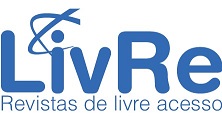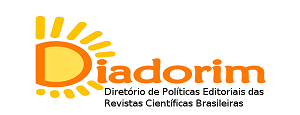O AGRONEGÓCIO DA PECUÁRIA DE CORTE EM ARAGUAÍNA (TOCANTINS)
Territorialidade e Representação Simbólica
DOI :
https://doi.org/10.70860/rtg.v13i29.17241Mots-clés :
Atores, Pecuária de Corte, Território, Estado, Poder SimbólicoRésumé
O município de Araguaína, localizado na região Norte do estado do Tocantins (TO), desde a década de 1980 tem a pecuária de corte como sua mais importante atividade do agronegócio. O município tem 1050 propriedades rurais, exercendo a atividade da pecuária, além de muitas propriedades rurais nos municípios vizinhos. A pesquisa objetiva analisar o processo de territorialização do agronegócio da pecuária de corte no município de Araguaína a partir do poder simbólico atribuído ao boi, bem como os discursos da elite pecuarista e dos representantes do sindicato rural e a participação do Estado no processo de crescimento das atividades do agronegócio. A pesquisa busca, ainda, observar as políticas públicas implementadas para os diversos atores envolvidos com essa atividade, bem como as preocupações e o impacto no meio ambiente. Do ponto de vista metodológico, o trabalho contou com contribuições de participação dos pesquisadores em reuniões do Sindicato Rural de Araguaína (SRA) e na Exposição Agropecuária de Araguaína (EXPOARA/2018). Realizou-se a aplicação de questionários semiestruturados, envolvendo 30 participantes da 30ª Cavalgada, ocorrida em 10 de junho da edição de 2018, na cidade de Araguaína. Para tratamento dos dados foi realizada a análise de conteúdo e análise da narrativa a partir da interação entre o entrevistador e o entrevistado. A pecuária de corte confere para Araguaína vantagem econômica, sobretudo, atrelada ao poder simbólico.
Références
AMARAL, Ricardo. Criação do Estado de Tocantins leva UDR ao poder. São Paulo: Folha de São Paulo, 1988. p. 5-5.
ARAGUAÍNA. Prefeitura Municipal. História de Araguaína. 2017. Disponível em: <http://www.araguaina.to.gov.br/portal/paginas.php?p=turismo>. Acesso em: 01 out. 2018.
ARAÚJO, Massilon J. Fundamentos de agronegócios. São Paulo: Atlas, 2005. 160 p.
BARROS, Raylinn. João Batista e família. Jornal do Tocantins, Araguaína, p. 01-05. nov. 2014. Disponível em: <https://www.jornaldotocantins.com.br/editorias/estado/jo%C3%A3o-batista-e-fam%C3%ADlia-1.710971>. Acesso em: 06 out. 2018.
BELCHIOR, Ernandes B; ALCANTARA, Pedro. H. R; BARBOSA, Claúdio F. Perspectivas e desafios para a região do Matopiba. Embrapa Pesca e Aquicultura, Palmas 2017. 3 p.
BOURDIEU, Pierre. O poder simbólico. Tradução Fernando Tomaz. 2 ed. Rio de Janeiro: Bertand Brasil, 1989.
BRITO, Eliseu Pereira de; ALMEIDA, Maria Geralda de. Sentido e organização do trabalho das quebradeiras de coco no Bico do Papagaio, Tocantins. Geosul, Florianópolis, v. 63, n. 32, p.229-248, jan. 2017. Semestral.
CASTORIADIS, Cornelius. A Instituição imaginária da sociedade. Tradução de Guy Reynaud. Rio de Janeiro: Paz e Terra, 1982.
COSTA, Delismar P; LOPES, Alberto P. A Territorialização do Capital do Agronegócio e a Agroindústria do Município de Araguaína (TO). Revista Tocantinense de Geografia, Araguaína, v. 10, n. 10, p.39-58, mai/agost. 2017.
CUNHA, José M. P. A migração no Centro-Oeste Brasileiro no período 1970-96: o esgotamento de um processo de ocupação. Campinas: Unicamp, 2002. 168 p.
DBO, Portal. JBS inaugura unidade em Araguaína, TO. 2015. Disponível em: <http://www.portaldbo.com.br/Portal/Noticias/JBS-inaugura-unidade-em-Araguaina-TO/11631>. Acesso em: 22 jan. 2018.
FOUCAULT, Michel. A ordem do discurso. São Paulo: Loyola, 1996.
FRANÇA, Andison. SEPLAN-TO (2012), (IBGE,2010); Projeção/ DATUM: Geografica/SAD-69; Elaboração Gráfica (10/18).
FREITAS, André Vieira. Estado, Território, Ambiente e Políticas Públicas: O Ordenamento Territorial e sua Interface Ambiental. (Orgs.) – 1. ed. – São Paulo: Outras Expressões, 2015. 280 p.
GOMES, Horieste. A produção do espaço geográfico no capitalismo. – 2ª ed. São Paulo: Contexto, 1991.
HALL, Stuart. A diversidade cultural na pós-modernidade. 5ª ed. Rio de Janeiro: DP&A, 2001.
IBGE - INSTITUTO BRASILEIRO DE GEOGRAFIA E ESTATÍSTICA. Produto Interno Bruto dos Municípios. 2015. Disponível em: <https://cidades.ibge.gov.br/brasil/to/araguaina/pesquisa/38/47001?indicador=47006&ano=2015>. Acesso em: 01 out. 2018.
IBGE - INSTITUTO BRASILEIRO DE GEOGRAFIA E ESTATÍSTICA. Pecuária. 2017. Disponível em: <https://cidades.ibge.gov.br/brasil/to/araguacu/pesquisa/18/0. Acesso em: 03 out. 2018.
IBGE - INSTITUTO BRASILEIRO DE GEOGRAFIA E ESTATÍSTICA. Pesquisa da População. 2017. Disponível em: https://cidades.ibge.gov.br/>. Acesso em: 03 out. 2018
JOSSO, Marie-Christine. Experiências de vida e formação. São Paulo: Cortez, 2004.
LOPES, Alberto P. A Cidade de Araguaína: porta de entrada e de saída dos trabalhadores aliciados. Observatório Geográfico da América Latina, Araguaína, p.1-15, 2015. Disponível em:v<http://observatoriogeograficoamericalatina.org.mx/egal12/Geografiasocioeconomica/Geografiaeconomica/97.pdf>. Acesso em: 02 out. 2018.
LORENSINI, C. L. et al. Mapeamento e identificação da época de desmatamento das áreas de expansão da agricultura no MATOPIBA. In:____. XVII Simpósio Brasileiro de Sensoriamento Remoto.João Pessoa: INPE, 2015.
MDIC. TO: Exportação, Importação e Saldo por Municípios. 2017. Disponível em: <http://www.mdic.gov.br/comercio-exterior/estatisticas-de-comercio-exterior/comex-vis/frame-municipio?municipio=1702109>. Acesso em: 22 jan. 2018.
MORAES, Roque. Análise de conteúdo. Revista Educação, Porto Alegre, v. 22, n.37, p. 7-32, mar.v1999. Disponívelbem: <https://edisciplinas.usp.br/pluginfile.php/4125089/mod_resource/content/1/Roque-Moraes_Analise%20de%20conteudo-1999.pdf> Acesso em: 03 dez. 2018.
PETER Rowinski. Campanha da Globo sobre Agronegócio é valorizada, o que será que a Globo quer com isto?2017. Disponível em: <https://meionorteinfo.blog/2017/06/29/campanha-da-globo-sobre-agronegocio-e-valorizada-oque-sera-que-a-globo-quer-com-isto/>. Acesso em: 09 out. 2018.
RAFFESTIN, Claude. Por uma Geografia do Poder. Tradução de Maria Cecília França. São Paulo: Ática, 1993.
SANTOS, Milton. Técnica, Espaço, Tempo: Globalização e Meio Técnico-científico-informacional. 5ª ed.São Paulo: Editora da Universidade de São Paulo, 2008.
SAQUET, Marcos A. Por uma Abordagem Territorial. In.: SAQUET, Marcos A. & SPOSITO, Eliseu S. (Org.) Territórios e territorialidades: teorias, processos e conflitos. 1ª ed.São Paulo: Expressão Popular: UNESP. Programa de Pós-Graduação em Geografia, 2008, p. 73-94.
SUL, Jornal. O Brasil é o maior exportador de carne bovina do mundo. 2017. Disponível em: <http://www.osul.com.br/o-brasil-e-o-maior-exportador-de-carne-bovina-do-mundo/>. Acesso em: 22 jan. 2018.
TRE - Tribunal Regional Eleitoral do Tocantins. Divulgação de candidaturas e Contas Eleitorais. 2016. Disponível em: <http://divulgacandcontas.tse.jus.br/divulga/#/>. Acesso em: 10 out. 2018.
Téléchargements
Publié-e
Comment citer
Numéro
Rubrique
Licence
© Journal de géographie Tocantinense 2024

Cette œuvre est sous licence Creative Commons Attribution - Pas d'Utilisation Commerciale - Pas de Modification 4.0 International.
Revista Tocantinense de Geografia ne rémunère aucun auteur pour la publication de ses textes. Le contenu des textes publiés dans cette revue relève de la responsabilité des auteurs.








.png)












